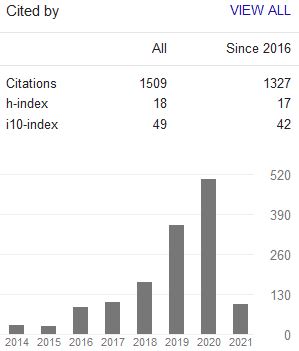الديمقراطية بإندونيسيا
Abstract
Democratic system has been implemented in Indonesia for more than ten years. There is no doubt in the success of the implementation of this democracy. However, in fact, the democracy reaches the phase of transition and is in the way of improvement through the democratization of the systems and the rule of law and ethics. This paper deals with this transition processes for maintaining the system and rule of law. The Constitutional Court as a judicial body is independent and autonomous to control laws and regulations. A neutral foreign policy plays a great importance to the increasing role of Indonesia within the ASEAN and the Organization of Islamic Conference. Indonesia has refused to enter into military alliances with other countries, allowing no military bases on its territory, and upholds the principles of peace, stability and democracy at the regional and international levels. The democratization is now challenged by corruption which prevails all over the country and unrest which may happen because of poverty and injustice acts.
Keywords
Full Text:
PDFDOI: 10.15642/JIIS.2010.4.2.413-437
Refbacks
- There are currently no refbacks.
Indexed by:
Journal of Indonesian Islam (ISSN 1978-6301 and E-ISSN 2355-6994) is published by the Postgraduate Program (PPs) and the Institute for the Study of Religion and Society (LSAS), State Islamic University (UIN) of Sunan Ampel Surabaya.
Journal of Indonesian Islam by http://jiis.uinsby.ac.id/index.php/JIIs/index is licensed under a Creative Commons Attribution-ShareAlike 4.0 International License.
Copyright ©2020 State Islamic University (UIN) of Sunan Ampel Surabaya. Powered by Public Knowledge Project OJS.







